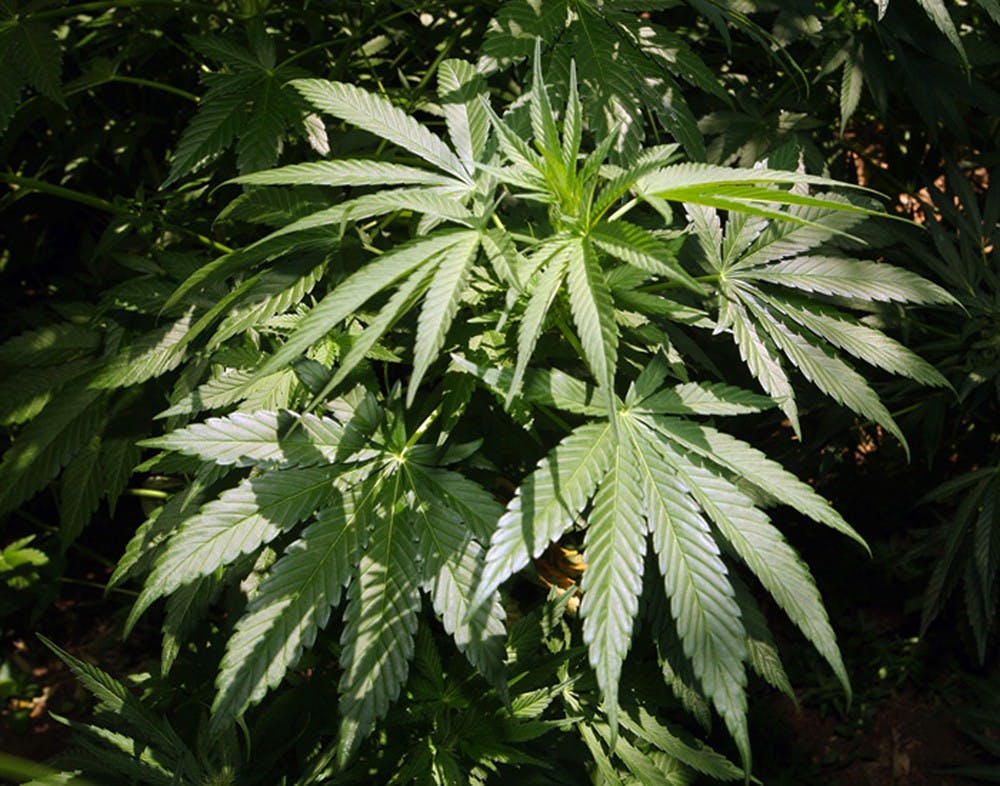Marijuana decriminalization prompts broader discussion

Marijuana is decriminalized in Mount Pleasant, but advocates of cannabis recognize this is a small step on the way to legalization.
Mount Pleasant, Berkley, Huntington Woods, Pleasant Ridge, Port Huron and Saginaw voted to decriminalize the possession and use of less than one ounce of marijuana on private property by an adult above the age of 21. These six Michigan cities brought the total to 12 in the State with such proposals.
"A lot of people jump right to legalization (as the next step) and that's bogus. When the Michigan Medical Marijuana Initiative passed in 2008, people said legalization was next, and here we are six years later," said Ian Elliot, president of Students Advocating for Medical and Recreational Cannabis. "It's not like its a floodgate opening; each issue is voted on by the population based on its own merits and if several years from now we decide that as a state legalization is what we want it will be voted on."
The Mount Pleasant Police Department does not actively target people in the community with marijuana, however this does not mean they will not charge offenders smoking or possessing marijuana outside of their residence, said Jeff Browne, public information officer. Possession of marijuana carries a 93 days misdemeanor charge with fines 200-500 dollars.
"Honestly one of my concerns is people not understanding the law and then going out and getting themselves in a pickle," Browne said. " A possession charge has always come with subsequent offenses, like after domestic violence or drunk driving. My understanding is things are not going to change. We are not going out to target individuals, we never have."
Article XIV of the city charter is was amended in the proposal. City Attorney Scott Smith said Mount Pleasant doesn't have any ordinances that deal marijuana, things will not change from a legal standpoint.
While students will not be able to walk down the street with a joint any time soon, the aim of the proposal was to begin a broader conversation. In Michigan the change is beginning.
In 2012, ballot proposals in the cities of Detroit, Grand Rapids, and Flint enacted provisions similar to those in Ann Arbor, and Ypsilanti passed an ordinance to make marijuana offenses the lowest priority for law enforcement officers. In 2013, voters in Lansing, Ferndale, and Jackson approved initiatives allowing citizens at least 21 years old to possess an ounce or less of marijuana on private property . In August 2014, voters in Hazel Park and Oak Park voted to approve a similar measure.
"This puts question on city officials for whether their obligation is to respect the democratic process or a system that is following laws that are based on corrupt evidence that were put into effect 80 years ago," Elliot said. "We hope that this momentum continues not toward legalization necessarily, but toward understanding."
He continued that politicians have begun to stratify to either side of the issue and will be held accountable for justifying their opinions to the people. The proposal passed by a vote of 2,705 to 1,639, with 62.3 percent of Mount Pleasant residents voting in favor, showing that popular opinion has the power to change policy after years of marijuana proposals being a fantasy.
"Locally there are a lot of politicians elected by small margins and when they look at marijuana, either on a medical or legalization side of things, they have to face that the 62% was not all democrats and not all students," Elliot said. "There are a lot of community members who are conservatives, business owners, teachers who support this. It is something the community wants and law enforcement is slowly realizing they have to respect that."
SAMRC utilized an organized grassroots approach to getting students to the ballot box. Elliot's organization passed out 4,000 informational pamphlets around the community detailing the pros and cons of decriminalization, and he said he saw many familiar faces at the polls on Tuesday.
"I think a lot of students didn't expect for this to happen," Elliot said. "Nationwide, this was a victory for us. Just about every newspaper had something about marijuana instead of just the candidates on the front page. This has become a mainstream issue, the response isn't from individuals it's from our society at large."



